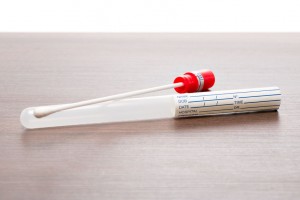Untested Sexual Assault Kits Destroyed by Police Department

Imagine that someone who brutally violated you or a loved one was never taken into custody. Now imagine that authorities have the evidence necessary to identify and arrest this person, but destroy it in order to make room for evidence from unrelated cases.
This is the situation in North Carolina, where the Fayetteville Police Department destroyed 333 sexual assault kits from unsolved cases between 1995 and 2008. Police Chief Harold Medlock says that the department will not be facing charges, as most of the individuals who destroyed the kits seven years ago are now retired. Medlock, who took over the department in 2013, presumes that the officers did not realize the importance of keeping the kits. “It makes all of us angry,” Medlock said at a press conference. “Now we find that [it] has some long-term, far-reaching consequences.”
Even though the kits were from older cases, age does not undermine importance. As told in an investigative report by USA Today, Joanie Scheske waited eighteen years without justice until her kit was tested in relation to an already eight-year old sexual assault case—and the DNA matched. Thanks to this evidence, Mark Frisella, whose brutal attack on Scheske lead to epilepsy, is now serving nineteen years in prison. Scheske’s story is not the only instance where we can attribute old sexual assault kits to recent convictions. Over 11,000 kits were discovered abandoned in a Detroit Police storage facility in 2009. After testing only 2,000 of the 11,000 kits, 188 serial offenders were identified, leading to fifteen convictions.
It is crucial not to forget the courageous victims behind each untested kit. Authorities continuously stress the importance of rape kits in the event of a sexual assault, but a large number of them will never go on to be tested. Choosing to undergo the process necessary for a rape kit immediately after being assaulted is incredibly brave, and their suffering is essentially exacerbated by departments that allow these kits to remain untested—or worse, destroyed.
That being said, rape kits continue to collect dust in police storage units nationwide. The White House estimates that over 400,000 rape kits remain untested throughout the country. USA Today’s investigative report speculates that the near $1,000 it costs to analyze each kit is cause for abandon by police. In addition, police officials claim that a lack of cooperation from victims gives cause to dispose of forensic evidence. As the executive director of the National Crime Victims Center, Mai Fernandez, points out, “the victim might not decide that they want to go forward with the case, but they might decide later on that they do.” Even if survivors fear retaliation if they press charges, Fernandez argues that, “if there’s enough circumstantial evidence, including the kit, a jurisdiction could decide to go forward without the victim.”
Sexual assault kits are vital weapons against violent offenders, and their importance does not diminish with age. Blaming the victim for a police department’s disinterest in analyzing evidence that identifies violent individuals is offensive and excusatory. Attributing lack of funding for the disposal of such evidence is troublesome. Perhaps a reevaluation of attributed funds in law enforcement is essential. With one in four women experiencing sexual assault on college campuses, to lack funding necessary to perform a test that easily identifies violent criminals, while dedicating time to cases involving nonviolent crimes, is irresponsible.
Hopefully this will soon change, as the federal government just this year invested $41 million in their new Sexual Assault Kit Initiative to help accelerate testing of the estimated 400,000 untested rape kits nationwide. With any luck the new initiative will not only provide departments with the funding necessary to test these vital pieces of evidence, but also stress the importance of pursuing such cases.
